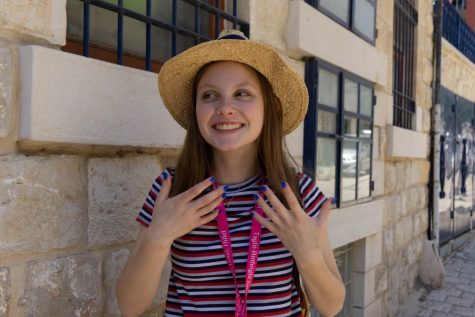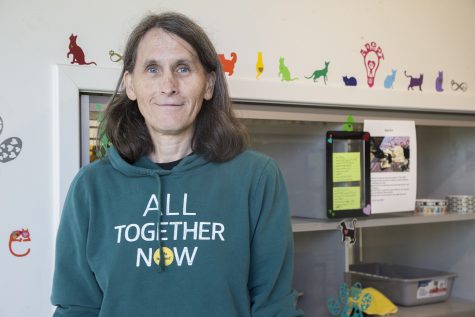Fourth Magnet designation for excellence granted to UI nursing program
University of Iowa Hospitals and Clinics was the first program in Iowa to be awarded the Magnet designation for nursing excellence in 2004. Fourteen years later, UIHC earns their fourth designation.
September 24, 2018
For the fourth time, University of Iowa Hospitals & Clinics has earned the Magnet designation for nursing excellence this year.
UIHC was the first in Iowa and the Big Ten to earn the designation in 2004, and it is now one of only six other Magnet hospitals in Iowa.
UIHC was also redesignated in 2008 and 2013.
The designation means hospitals and clinics have more than 100 standards to maintain. UIHC integrates those standards into its nursing practices, making Magnet the center of its daily routines, said Sara Caven, the director of centralized functions and the UIHC Magnet Program.
RELATED: Nursing student by day, tattoo artist by night
“The standards they are challenging us to meet today are not the same standards they’ve put forth in years past,” said Emily Ward, the UIHC associate chief nurse executive. “They’re continually challenging us and other hospitals to be better. What we are applying for and what we are showing them is new, creative, and innovate things that we are doing to stay on that frontline of health care and nursing in general.”
To be redesignated, hospitals must maintain a level of excellence throughout the designation cycle, Caven said. Every year, hospitals submit data about their nursing practices. Biannually, they submit an additional progress report to prove the hospital’s worthiness of redesignation. Finally, an application is submitted at the end of the four-year designation cycle.
The Magnet Program institutes site visits after the document submission; the officials walk away with a better understanding of what submitted documents are like in practice, Ward said.
RELATED: UIHC urgent care center provides an increase in accessibility
At the American Nurses Credentialing Center National Magnet Conference every fall, representative nurses from hospitals across the country discuss their exemplary practices for others to learn from, Ward said.
When Magnet observed UIHC, there were two exemplar practices officials believed should be shared with the rest of the world, she said. One was UIHC’s shared government structure, and the other was alcohol-abuse screenings for psychiatric patients.
UIHC will send 20 nurses to the conference in Denver this fall.
“It’s so integrated to our structures in nursing,” Caven said. “It’s not that hard to maintain our Magnet status. It’s almost harder to choose which example we are going to give for any particular standard, because we have such a long history of aligning ourselves with the Magnet model. It’s built into our culture.”
Top prospective employees seek to be a part of UIHC’s team because of its Magnet status. Recruitment of the top nurses from across the country, Caven said, is one of the best benefits from being a Magnet program.
“To be Magnet, you have to uphold yourself to the highest standards in patient care and work standards,” UIHC staff nurse Danilo Jahn said in an email to The Daily Iowan. “To achieve these goals, you have to put mechanisms in place to ‘walk the walk.’ You have to have the organizational structure to support your mission and allocate resources for it. You will have opportunities for professional development, as well as involvement in developing and implementing new strategies. To be Magnet is a lifestyle, in a sense.”





















